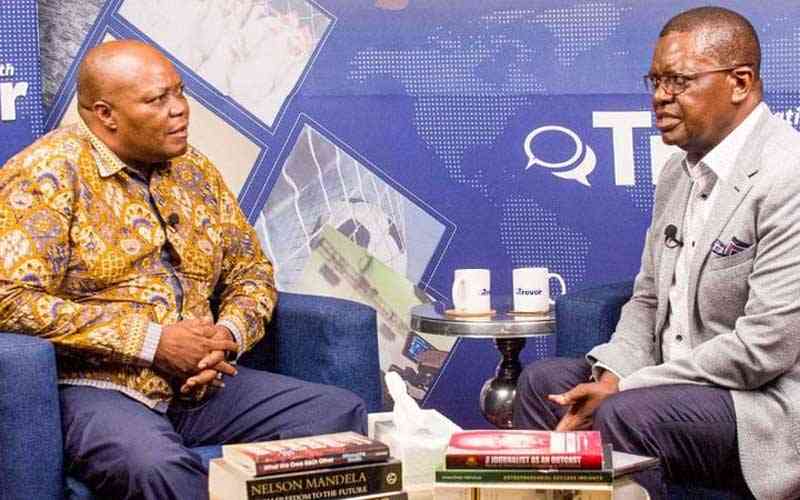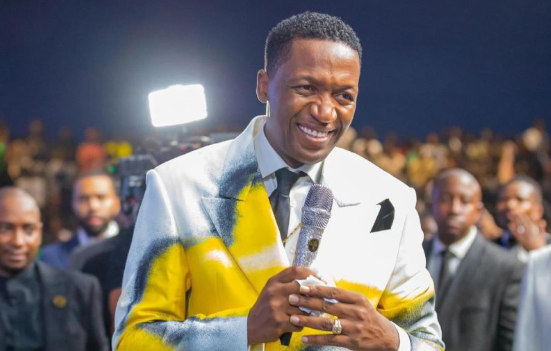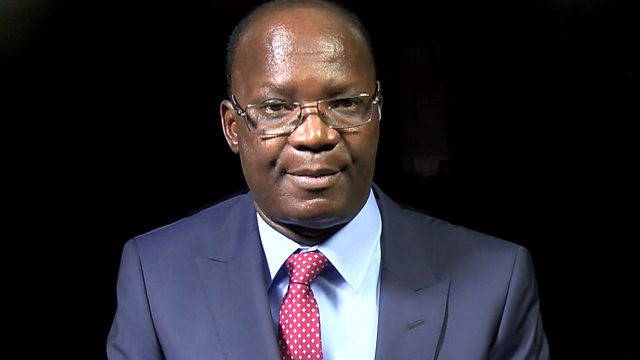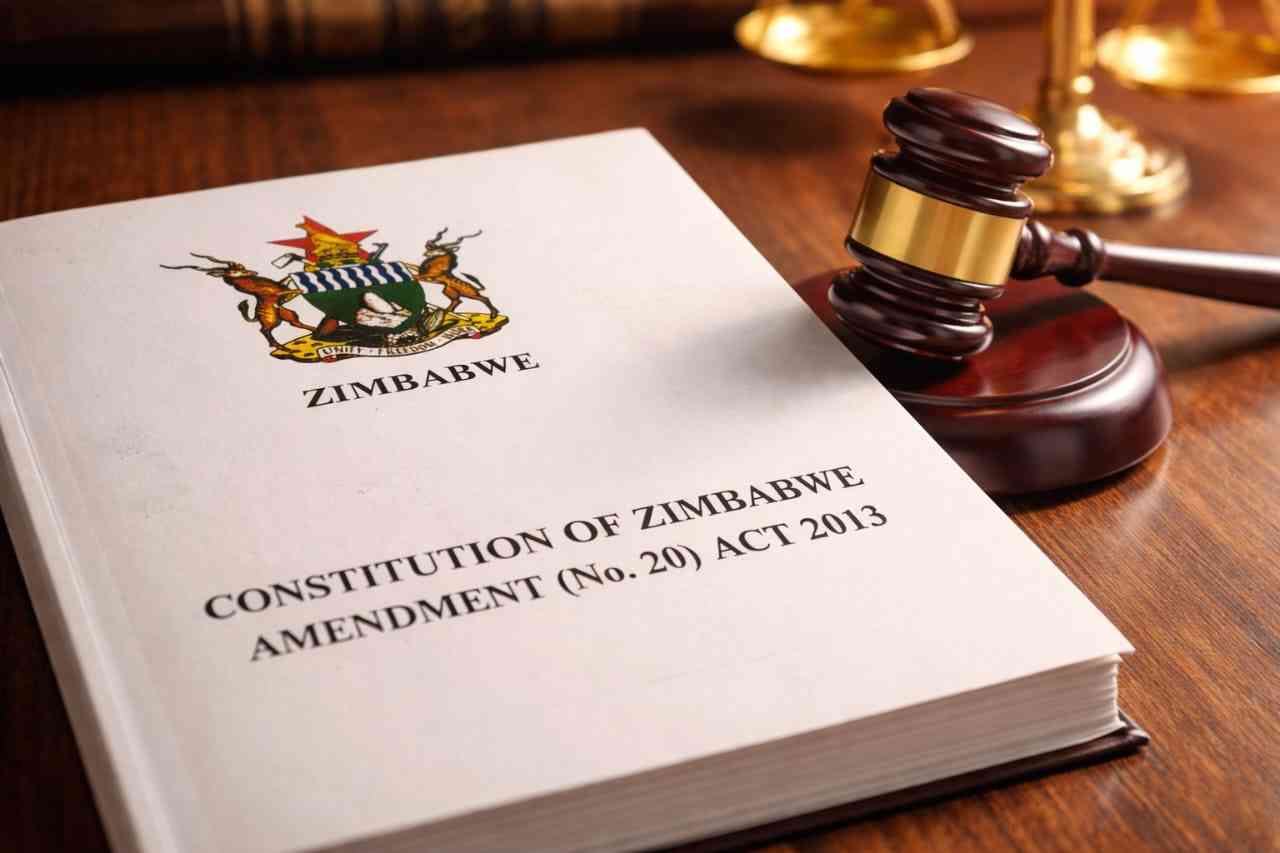
Outspoken opposition stalwart Job Sikhala says the 595 days he spent in solitary confinement at Chikurubi Maximum Security Prison hardened him contrary to what his tormentors envisaged.
Sikhala (JS), who was released last month after he was arrested for a litany of charges that included inciting public violence and publishing falsehoods, made the declaration on the platform In Conversation with Trevor which is hosted by Alpha Media Holdings chairman Trevor Ncube (TN).
Below are the excerpts from the conversation.
TN: My brother, Job Wiwa Sikhala, welcome to In Conversation With Trevor.
JS: Thank you very much brother Trevor for your invite.
TN: Wow. Well, your being incarcerated for 595 days.
- I do not think there is a normal person, who is not touched by the time that you spent in prison.
- You are out now; you also have had to go to court for to face charges of publishing falsehoods on your Facebook page.
- Talk to me about your state of mind? 595 days in prison?
JS: You know, these are some of the vicissitudes human beings meet in life.
- In Conversation with Trevor: Chisamba: Let’s be proud of ourselves
- In Conversation with Trevor: ‘I tried to change Zanu PF from within’ – Margaret Dongo
- In Conversation with Trevor : How car crash changed my life
- In Conversation With Trevor: ‘We lost our humanity’
Keep Reading
It has not been easy for me. I have been treated like a terrorist since the day of my arrest.
I was thrown into solitary confinement, 21/2-metre by one metre prison cell where I endured the whole long stay by myself in that prison.
The [difficult] part of it is that you are thrown into this solitary confinement for 17 hours (a day) where you are forced to sleep at 3pm until the following day at 8am.
The difficult part of it is that when there [is] no electricity, and this country [has] been facing a huge challenge of electricity blackouts, you will be in darkness.
The kind of darkness that you will have in that prison will definitely have [a] serious impact, both on you as a person, and also in terms of how you could communicate with nature because living in darkness has not ever been our usual circumstances that we have been doing as human beings.
So the situation was very difficult.
I had to develop serious and strong mental strength for me to be able to overcome that.
The first thing that I told myself is that my persecutors and my oppressors can do whatever they want with me.
There are moments when a human being will reach a point to [make] very serious resolutions about themselves.
I reached that moment during the period of my persecution, to say the first thing that I have to understand is for me to study the nature of my oppressors.
What their intentions [were]...
TN: Right.
JS: For them to throw myself into those conditions.
The first thing that I noticed is that they wanted to break me down.
Secondly, they wanted [me] to be humiliated for no other apparent reason except being the opponent of my adversaries.
The second thing that I also noticed was that my oppressors wanted me to isolate myself from the world.
They did not want me to obtain any information of what was happening outside.
They governed and regulated all my visits at the prison.
Initially, during the first six months of my detention it was the most difficult period.
They did not allow my family members to visit me.
They did not allow anyone from outside, friends, relatives or anyone to visit me.
So they wanted also to isolate [me] from the members of the community who could give me strength for me to be able to overcome the conditions that I was living in.
So, after having noticed the intentions of my oppressors I told myself that these people think that oppressing somebody will break him to the extent that he will succumb and submit to the forces of oppression.
So, what I started to do was that I firstly approached the courts of law for an order seeking that I be allowed to read any material that I need to read.
That is in terms of the provisions of the law, in terms of Section 50 of the constitution of our country, on the rights of detained persons and those who have been arrested.
And also, the same provision is amplified in section 70 of our constitution.
So, after approaching our courts I was given an order that I can read any material that I would want.
I started reading materials of many people, who have gone through the situation that I was going through.
TN: So that strengthened you?
JS: It did not only strengthen me, [but it also] hardened me.
I became extremely hardened, especially after having read firstly Mandela’s own Long Walk to Freedom.
And also, his biography by (Anthony Sampson). I also read the way how [in] Chris Hani’s biography, when after the Wankie Operation he was arrested by the Botswana authorities and thrown into prison.
TN: So instead of breaking you...
JS: They hardened me!
TN: These conditions hardened you. So they did not achieve what they thought they would achieve?
JS: It completely obtained the opposite.
TN: Tell me, when you were inside there did it occur to you [that] there are so many opposition members, so many opposition leaders. Did it occur to you why me?
- I mean the case of having represented (the slain) Moreblessing (Ali) perhaps as an excuse for imprisoning you, did it occur to you why me in particular?
JS: Obviously this was one of the most important questions that I was asking myself daily.
TN: And what answer did you come up with?
JS: Secondly, I also [had] to put my own people, who could sneak information for me to gather from the sources of my own oppressors what their intentions were.
Also number three, I had also the opportunity to meet some of the people from my oppressor’s camp in prison.
TN: Yeah.
JS: And generally, I also was inquisitive for me to know the reasons why this thing was being done to me.
The first thing [why] they did this to me was that they did not want me to be available during the 2023 general elections for the purpose that they were afraid that I would cause chaos and pandemonium in the event of a rigged electoral outcome.
This is one thing that they said: “Job Sikhala must not be allowed to be present during the election”.
Secondly, also what I gathered is that they never wanted my self to be a strong backup for the Nelson Chamisa presidential candidature against his opponent during [those] elections.
They said that will strengthen Nelson Chamisa to the extent that this man can cause trouble in this country.
Number three was that they also wanted to make sure that my incarceration will divorce me from the general membership and colleagues that I was working with during the period of my incarceration.
They wanted to cultivate animosity and hostilities because during the process of this incarceration they [had] been spreading counterintelligence rumours, both to my ears, and also to the ears of Nelson Chamisa, and the ears of my other colleagues who were outside.
[This was] to create a wedge and hostility between the two of us.
However, you understand that in human life people take things differently; some people believed the things that they were being told.
TN: Yeah.
JS: By counterintelligence operatives.
TN: Is this to the extent that...I mean let me go to your letter Job of January 1, 2023. Where you say: “The University of Chikurubi security prison has revealed to me the treacherous sellouts, colluders, with my persecution, opportunists trying to capitalise on the predicament of the moment for cheap political and financial gain from the tormentors”.
- And you also say: “I long discovered that some people have been working secretly, conniving with my tormentors.”
- Is this the counterintelligence that you [were] dealing with? Did you believe that your comrades outside were working against you?
JS: Not specifically, but however you know what, I want to be very frank with you.
There were some rumours, falsely so.
TN: Yeah. What were the rumours, Job?
JS: [Rumours] that were being spread around by people, who did not carefully study the reasons of why I was arrested.
As I mentioned to you, Zanu PF’s intention was to eliminate me from the electoral process, they did not want to see me there.
They did not want to see me as the backup up to Nelson Chamisa’s presidential bid.
They did not want that.
Thirdly, they wanted to make sure that my relationship with my other colleagues outside were going to be affected by planting these rumours, which they did, that was done. The most dangerous rumour, which hardened my oppressors, which was spread which are false. And I want this one to be [well] known by [everyone].
TN: Sure.
JS: Was that Job Sikhala [in] what he has been doing, in whatever he was doing, he has been used and was working in collusion with (Retired) General (Constantino) Chiwenga to overthrow Emmerson Mnangagwa’s presidency in this country.
A pure lie created [for] I do not know for what purpose.
So, when this rumour was also conveyed to my oppressors, my oppressors became hardened through a lie.
I have never met General Chiwenga, I do not know him.
Where this rumour emanated from, and for it to be said I still wonder up to [this] present day what the intentions [were].
TN: What was the effect of that rumour on people like Nelson Chamisa?
JS: I do not know because I was not there, but it is one of those that has been spread against me when I was inside.
And it deceived my oppressors to believe the same, that truly there was some collusion between me and General Chiwenga, but truly I don't know General Chiwenga, we never met.
The only time I met him was in July 1997.
TN: Right.
JS: Some 30 years ago I think, some 20 plus years ago, I think.
When we as student leaders visited State House after invitation to a meeting by the late president Robert Mugabe to go and solve the issues that led to demonstrations at the University of Zimbabwe.
What were our grievances, and what were our concerns.
President Mugabe invited us for that meeting. That is the only day I saw his (Chiwenga’s) face. Up to the present [day] I [have] never met him. I have never talked to him.
I do not know him. I do not know why this rumour was spread against me.
In such a situation what happens is, if such a rumour is spread against your opponent, your opponent becomes hardened.
TN: Right.
JS: Secondly, he (your opponent), could do anything, because he would see [me] as a conspirator against his authority.
So that rumour honestly, really affected [me].
TN: But the other rumour that I think affected you is the rumours around your comrades.
- Because your letters were pretty pointed, that “those who I used to regard as friends have never visited or brought me even a banana.
- “I long discovered that they have been secretly conniving and working with my tormentors to get rid of me.” Your letters are very pointed in that regard? Have you come out and have you revised theses positions?
JS: I cannot revise them.
TN: Okay.
JS: On the basis that this is what has been said, not pointedly to anyone.
TN: Okay.
JS: But this was just general rumours that were spread around about me. Whose source and origins still are unknown.
TN: Okay.
JS: But it was coming it was said to be coming and originating from my colleagues, whom specifically I do not know who that person is.
Frankly speaking, I do not know, but these things were said to be originating from those people.
TN: These were strong views. I want us to move away from this.
- These were strong views. Now you have come out, is there peace now between you and your comrades?
JS: I do not hold anything against anyone.
- “In Conversation With Trevor” is a weekly show broadcast on YouTube.com//InConversationWithTrevor. The conversations are broadcast to you by Heart and Soul Broadcasting Services. The conversations are sponsored by WestProp Holdings.










